Related Research Articles

Charles Kenneth Horne, generally known as Kenneth Horne, was an English comedian and businessman. He is perhaps best remembered for his work on three BBC Radio series: Much-Binding-in-the-Marsh (1944–1954), Beyond Our Ken (1958–1964) and Round the Horne (1965–1968).
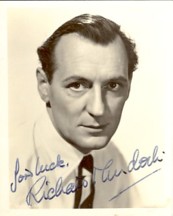
Richard Bernard Murdoch was an English actor and entertainer.
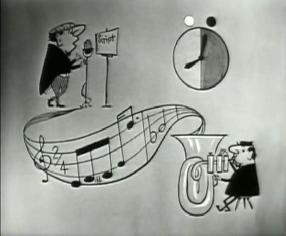
Hancock's Half Hour was a BBC radio comedy, and later television comedy series, broadcast from 1954 to 1961 and written by Ray Galton and Alan Simpson. The series starred Tony Hancock, with Sidney James; the radio version also co-starred, at various times, Moira Lister, Andrée Melly, Hattie Jacques, Bill Kerr and Kenneth Williams. The final television series, renamed simply Hancock, starred Hancock alone.

Arthur Bowden Askey, was an English comedian and actor. Askey was known for his short stature and distinctive horn-rimmed glasses, and his playful humour incorporating improvisation and catchphrases including "Hello playmates!", "I thank you" and "Before your very eyes".
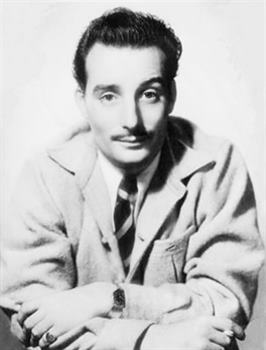
Val Guest was an English film director and screenwriter. Beginning as a writer of comedy films, he is best known for his work for Hammer, for whom he directed 14 films, and for his science fiction films. He enjoyed a long career in the film industry from the early 1930s until the early 1980s.

Shirley Jean Eaton is an English former actress and singer. Eaton appeared regularly in British films throughout the 1950s and 1960s, and gained her highest profile for her iconic appearance as Bond Girl Jill Masterson in the James Bond film Goldfinger (1964), which gained her bombshell status. Eaton also had roles in the early Carry On films.

Whack-O! is a British sitcom TV series starring Jimmy Edwards. It was written by Frank Muir and Denis Norden.

Sally Ann Howes was an English actress and singer. Her career on screen, stage and television spanned six decades. She is best known for the role of Truly Scrumptious in the 1968 musical film Chitty Chitty Bang Bang. In 1963, she was nominated for a Tony Award for Best Lead Actress in a Musical for her performance in Brigadoon.
Band Waggon was a comedy radio show broadcast by the BBC from 1938 to 1940. The first series featured Arthur Askey and Richard "Stinker" Murdoch. In the second series, Askey and Murdoch were joined by Syd Walker, and the third series added Diana Clare for two episodes. Band Waggon was co-produced by Gordon Crier and Harry S. Pepper and was the first comedy show to be designed for radio.
David Freeman was a British film and television writer, working chiefly in comedy.
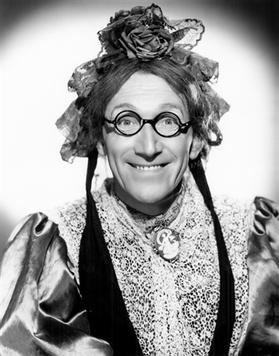
Charley's (Big-Hearted) Aunt is a 1940 British comedy film directed by Walter Forde, starring Arthur Askey and Richard Murdoch as Oxford 'scholars'.
Love and Kisses was a black-and-white British sitcom that aired on ITV in 1955. It was written by Glenn Melvyn, who also starred in it. It was made for the ITV network by Associated-Rediffusion and was a spin-off series from the film The Love Match (1955) which was also written by and starred Glenn Melvyn.
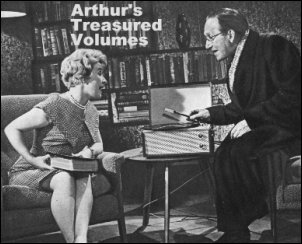
Arthur's Treasured Volumes was a black-and-white British television series that aired on ITV in 1960. Starring Arthur Askey, it was written by Dave Freeman and was made for the ITV network by ATV.
The Arthur Askey Show was a short-lived black-and-white British sitcom starring Arthur Askey that ran for six episodes in 1961. It was written by Dave Freeman. It was made for the ITV network by ATV. The following year Askey appeared in another series Raise Your Glasses on the BBC.
Does The Team Think? was a radio panel game broadcast originally on the BBC Light Programme from 1957 to 1976, and revived, again on Radio 2, with a new cast, in 2007. It also broadcast as a TV programme.
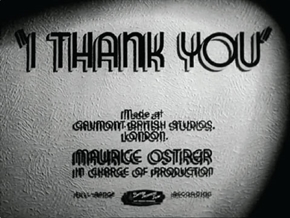
I Thank You is a 1941 black and white British comedy film directed by Marcel Varnel and starring Arthur Askey, Richard Murdoch, Graham Moffatt and Moore Marriott. It was produced by Edward Black at Gainsborough Pictures. The title of the film is the literal version of Arthur Askey's famous catch-phrase which he idiosyncratically pronounced as "Ay-thang-yaw".
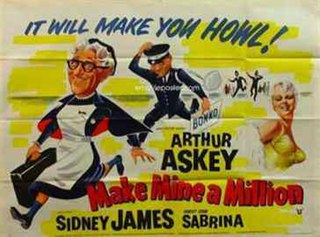
Make Mine a Million is a 1959 British comedy film directed by Lance Comfort, starring Arthur Askey, Sid James and Bernard Cribbins. It was written by Askey, Peter Blackmore, Jack Francis and Talbot Rothwell, and distributed by British Lion. The film parodies the perceived stuffiness of the 1950s BBC and the effect of television advertising in the era.
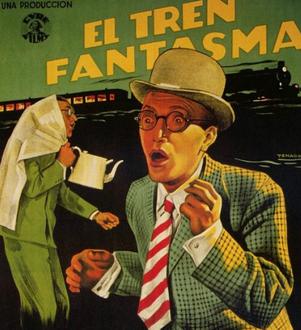
The Ghost Train is a 1941 British thriller mystery film directed by Walter Forde and starring Arthur Askey and Richard Murdoch. It is based on the 1923 play The Ghost Train by Arnold Ridley.
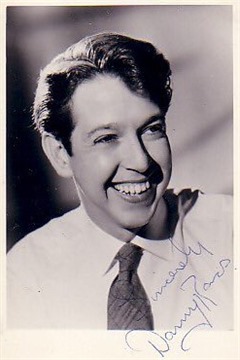
Ronald Crabtree known by his stage name Danny Ross, was a British comedian best remembered for his role alongside Jimmy Clitheroe in the long running BBC Radio comedy show The Clitheroe Kid (1957–1973).
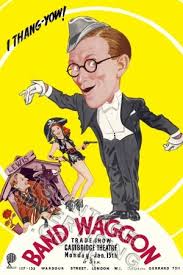
Band Waggon is a 1940 British comedy film directed by Marcel Varnel and starring Arthur Askey, Richard Murdoch and Moore Marriott. It was based on the BBC radio show Band Waggon.
References
- Mark Lewisohn, "Radio Times Guide to TV Comedy", BBC Worldwide Ltd, 2003
- BBC Comedy Guide for Living It Up